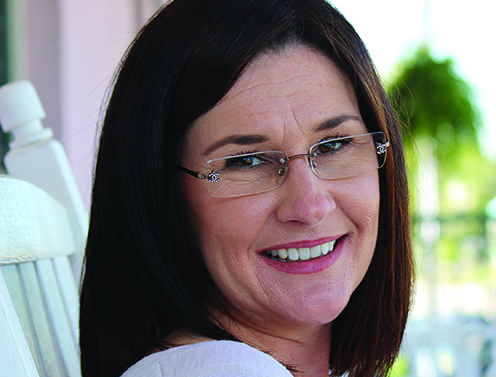By Darcie Lunsford
It’s often said there are five stages of grief: denial, anger, bargaining, depression and, eventually, acceptance.
If international trade had been personified as the beloved and long-standing economic partner to tourism, then South Floridians still would be in the denial stage over incoming President Donald Trump’s stance on possibly pulling the plug on the North American Free Trade Agreement and abandoning or renegotiating other crucial trade pacts.
International trade is the aorta of commerce for South Florida and the entire state, pumping $147.4 billion in products in and out of Florida in 2015, according to an Enterprise Florida report. The sector supports 2.5 million jobs statewide. Boiled down, one in every four jobs is tied to trade.
Florida imports about as much as it exports.
Commercial real estate developers have bet big that the state and South Florida, in particular, are well-positioned to gobble up greater global market share. Since the Great Recession ended, nearly 9 million square feet of new, state-of-the-art warehouse and distribution hubs have either been built or are underway in Miami-Dade, Broward and Palm Beach counties.
“I think everybody is in a wait-and-see mode,” says Manny Mencia, senior vice president of international trade and business development for Enterprise Florida.
New presidential administrations tend to reassess things, and there’s a lot at stake, even if Trump makes good on withdrawing only from NAFTA, a trilateral trade pact between the United States, Canada and Mexico, which he quipped was “the worst trade deal in history.”
Thanks to NAFTA, Canada and Mexico are among the top countries doing business with Florida. “These are very large and integrated economies,” Mencia says. “Together, they form one the largest trading blocs in the world.”
Canada, in fact, is the No. 1 export market for goods originating in Florida. Mexico is third. And that doesn’t take into account all the professional services—such as legal, accounting, engineering and technology—that flows freely from Florida into Mexico and Canada as a result of NAFTA, Mencia says.
Many don’t regard Florida as a manufacturing juggernaut, but the state ranked seventh in the nation for manufactured exports, shipping out $47.9 billion in 2015, according to Enterprise Florida. Computer and electronic components, transportation equipment, chemicals, machinery and food products are the top exported manufactured goods.
Florida manufacturing for export doubled between 2000 and 2015. That outpaced national growth, of 86 percent.
Then there’s China, also squarely in Trump’s trade-deal crosshairs, which is the state’s second-largest trade partner with $9.3 billion in exports and imports in 2015. Brazil is first with $18.6 billion in two-way trade.
Despite Trump’s campaign promises, South Florida’s commercial real estate sector has remained unflappable.
“For South Florida, the activity levels remain strong,” says Mike Silver, a veteran Miami-based industrial broker at CBRE. “School is still out on what the ramifications for South Florida’s industrial market will be.”
If Trump withdraws the nation from NAFTA, the consequences would be severe and reach far beyond South Florida, says Tony Villamil, a trade economist and cofounder of Coral Gables-based Washington Economics Group.
Villamail was the undersecretary of commerce for economic affairs under President George H.W. Bush and was part of the policy team that worked on NAFTA. He reminds people that NAFTA was a bipartisan initiative that started under President Ronald Reagan and was signed by President Bill Clinton in 1994.
“NAFTA is misunderstood. We wanted a strategic agreement that would unite North America,” Villamil says. He acknowledges some pockets of the country have lost jobs, but others prospered. The agreement has been an net economic boon for the United States, he says.
Withdrawing from it—or even trying to seriously revise its basic free-trade underpinnings—could be thorny. Just consider the auto sector, whose supply chain to assemble cars built in Detroit is now inextricably interwoven across North America.
“You start to unravel that and you will create a recession in North America,” Villamil says.
“You’ll also raise costs for goods, which will pluck money out of consumers’ pockets,” he says. But there might be room for improvement. Protection for intellectual property and technology are areas that he thinks could be enhanced.
“We need open markets,” Villamil says. “If any place would be impacted, it is South Florida, because we’re a global market.” ↵
Freelance writer Darcie Lunsford is a former real estate editor of the South Florida Business Journal. She is the senior VP for leasing at Butters Group and is avoiding a conflict of interest in her column by not covering her own deals.














